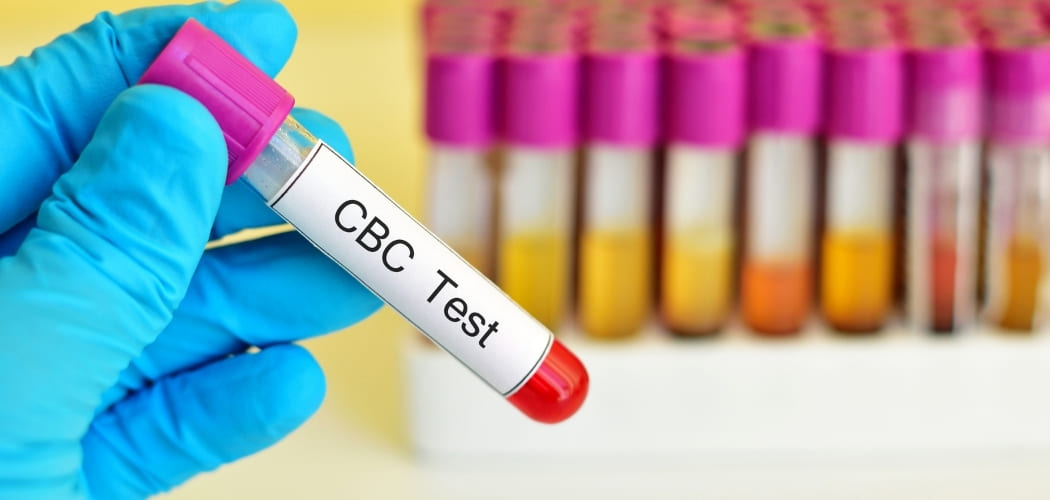What is the use of a CBC blood test?
What is a CBC test? Why is a CBC test done? We have all the answers and the easiest solution for your health checkups. We, at Diagnear, cater to your needs and aim for utmost convenience and satisfaction by providing convenient doorstep sample collection for free.
Regular, timely blood tests and health checkups are a must, and we make the process convenient for you. With our sample collection services, we intend on eliminating any issue you might have to face in the health checkup process.
A complete blood count (CBC) test is a blood test to evaluate your overall health and detect a range of disorders. A complete blood count test measures white blood cell count, red blood cell count, platelets and several other components and features of your blood. Apart from those above, a CBC test reads the Hemoglobin levels, Hematocrit levels and detects a wide range of disorders, including anaemia, infection, dehydration, bone marrow disorders, autoimmune disorders and leukaemia.
Any abnormal increases or decreases in cell counts as depicted in a complete blood count may indicate that you have an underlying medical condition that calls for further evaluation.
Why is a CBC Test important?
A Complete Blood Count test is a vital test for the following reasons:
To review their overall health: A doctor may recommend you a CBC test as part of a routine examination to keep track of your general health and to check for a variety of disorders, such as anaemia, infection, dehydration, bone marrow disorders, autoimmune disorder or leukaemia.
To diagnose an existing medical condition: A doctor may suggest a complete blood count if you're experiencing weakness, fatigue, fever, inflammation, bruising or bleeding. A CBC test may help diagnose the cause of these signs and symptoms. If your doctor suspects you have an infection, the test can also help confirm that diagnosis.
To monitor an existing medical condition: There are certain medications that affect your blood cell count; a CBC test, if conducted, can detect such signs and preventive or curative measures can be taken accordingly.
Checking side-effects of any disorder: Many side effects are internal which are left undiagnosed; this test helps to gather information if a treatment like radiation or chemotherapy is affecting any blood cells or has been affected in the past and by what? Degree.
How to check CBC reports? What are appropriate levels of CBC components?
This is a frequently asked question of how to check reports and what they indicate.
Below is a chart depicting the normal ranges of the areas involved in the CBC test.
Red Blood Cell Count
Male: 4.35-5.65 trillion cells/L*
(4.35-5.65 million cells/mcL**)
Female: 3.92-5.13 trillion cells/L
(3.92-5.13 million cells/mcL)
Hemoglobin
Male: 13.2-16.6 grams/dL***
(132-166 grams/L)
Female: 11.6-15 grams/dL
(116-150 grams/L)
Hematocrit
Male: 38.3-48.6 percent
Female: 35.5-44.9 percent
White Blood Cell Count
3.4-9.6 billion cells/L
(3,400 to 9,600 cells/mcL)
Platelet Count
Male: 135-317 billion/L
(135,000 to 317,000/mcL)
Female: 157-371 billion/L
(157,000 to 371,000/mcL)
Here are the areas, if above or below normal ranges in the CBC test, it may indicate a problem.
Platelet count. There are cases where the platelet count is lower than normal (thrombocytopenia) or higher than normal (thrombocytosis) is often a sign of a hidden medical condition, or it may be a side effect from certain medication. If your platelet count is above the normal range, you'll most probably need additional tests to diagnose the cause further.
White blood cell count. Also, there are cases where white blood cell count is low (leukopenia); it may be caused by a medical condition, such as an autoimmune disorder, bone marrow problems or cancer that destroys white blood cells. If your white blood cell count is higher than normal, you may have an infection or inflammation. Or, it could indicate that you have an immune system disorder or a bone marrow disease.
Red blood cell count, haemoglobin and hematocrit. If the measures in these three areas are lower than normal, you have anaemia. Anaemia has many causes, including low levels of certain vitamins or iron, blood loss, or an underlying condition. Anaemia causes fatigue and weakness.
A red blood cell count that's higher than normal (erythrocytosis) or high haemoglobin or hematocrit levels could point to a hidden medical condition, such as polycythemia vera or heart disease.
For specifics about what your complete blood count results mean if they fall outside the normal ranges, talk to your doctor.



 Login/Sign Up
Login/Sign Up





